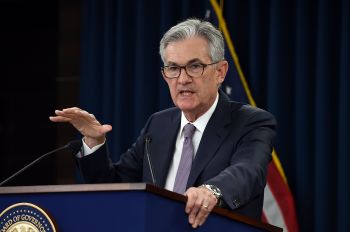Kai Ryssdal: Step number two in the news of the day is understanding why the central banks did what they did: the liquidity injection. For that we’ve got our New York bureau chief Heidi Moore on the line. Hey Heidi.
Heidi Moore: Hey.
Ryssdal: All right, so first of all, liquidity injection. In layman’s terms, please: What does that mean?
Moore: Liquidity is really easy to understand: It just means making sure that there’s a buyer for every seller. So in this case, European banks need to buy dollars and no one’s selling to them, because they’re in a dangerous place. So the Fed is saying ‘We’ll sell those dollars to you and we’ll make it cheap.’
Think about it as putting oil in your car, right? So your car needs oil to run to keep those gears moving. And it’s dollars that make that economy work, and those dollars are drying up in Europe. So the Fed is saying ‘We’ll help you inject some oil back in this so that you can keep your economy running.’ And by turns, that means that the U.S. economy will keep running.
Ryssdal: But the Europeans have their own oil, right? They have euros. Why do they need our oil, if I can torture the metaphor?
Moore: Sure. Well yeah, think about what a euro means, right? It is this currency backed by 17 countries that can’t agree on anything, that just three days ago were talking about breaking up. We’ve got our problems, but that’s not our problem. So we’re looking preferable. But also, the dollar is the way that the financial system does business, right? All these banks are global, they lend to American companies, they take money from American investors. And just the same way that the language of business is English, the currency of business is the dollar.
Ryssdal: Help me understand then why this is the solution, because I understand the idea of cash sloshing around in the system and that being a good thing, but aren’t a lot of these countries, and a lot of the people whose debt is in question here, broke? Are we treating the right symptom?
Moore: No. You’re absolutely right. This is more of a painkiller because the causes here are the eurozone and its incredible troubles, and you can’t fix that. You need the politicians to fix it. So what this does is just make sure that the banks at least have some running room and a little bit of safety if anything really bad happens. And we’ve seen the Fed and the European Central Bank do this every single time we have a crisis. They usually jump in when they see a specific threat to banks and they say, ‘We’re going to lend to you because we see no one else will.’
Ryssdal: Well can we assume then, based on what they did today, that the central banks saw something that scared them and thus were forced to act?
Moore: It would speculation, but it sounds like that might be the case, only because this week has been such a fever pitch of rumors. We started out on Monday with rumors about the break-up of the eurozone, which is kind of a financial armageddon. So probably things were getting so dire and the rumors were getting so sharp that the central banks thought ‘We have to do something.’
Ryssdal: And so they did. Heidi Moore in our New York bureau. Thanks, Heidi.
Moore: Thank you, Kai.
There’s a lot happening in the world. Through it all, Marketplace is here for you.
You rely on Marketplace to break down the world’s events and tell you how it affects you in a fact-based, approachable way. We rely on your financial support to keep making that possible.
Your donation today powers the independent journalism that you rely on. For just $5/month, you can help sustain Marketplace so we can keep reporting on the things that matter to you.


















